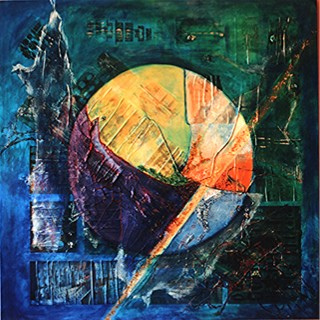Practicing Wholeness
October 31, 2012 Leave a comment
|The Alchemy of Wholeness by Armanda Moncton|http://www.flickr.com/photos/armandamoncton/1705798622|
On Sunday, Gibran Rivera and I facilitated a workshop at Connecting for Change/Bioneers by the Bay about change practices for a networked world. Another way of thinking about what we were exploring was to put it in terms of “practices for wholeness.” Part of our premise was and is that we are suffering from a worldview that leads with and to fragmentation and fixity. This is part of our inheritance from the industrial age that strives to understand through division and an associated mindset that believes we can make a separation between observer and observed with no associated impact. For certain tasks, of course, it makes sense and is possible to divide, diagnose and put back together. But this does not make sense, nor is it possible, in the case of complex living systems. Furthermore, we have gotten ourselves in a bind because our habits of thought have led us to thinking that the divisions and categories we have created are in some sense primordial. And so we are hard pressed to believe, or remember, that what we do to our “environment” or “others” we do to ourselves!
“We are moving and we are nested.” This is one of our mantras. Evolution is happening, and we are a part of and integral to that movement as we comprise greater moving wholes (human and more diverse biotic communities, for example) and are comprised of lesser (smaller, not less important) moving wholes (the sub-systems of our individual biology, for example). To the degree we are whole at the individual level, we project this wholeness out through larger systems. To the degree we are fragmented, we project this fragmentation, in our thinking and in our being/doing. And so we emphasize and explore practices that help us overcome our fragmentation and notions of fixity. Here is some of what we discussed, and noted often does not happen is social change efforts:
- Individual/Self – At the level of individual we talked about how our thinking and doing can be made more whole by questions and exercises that draw our attention to essence, connection, values, movement, and development. Who are we? At the end of the day, what do we most value? What sustains us? What and who got us to where we are now? What is our trajectory? How do we love?
- Group/Collective – At the level of the group/collective, we looked at the transition from machine bureaucracy notions of organization (epitomized by the org chart) to fluid and distributed networks. This is not to say that there is no place for formal organizations or org charts, but rather a reminder to consider what they can and cannot accomplish, do and do not represent. Machine bureaucracies have us looking at “the top” or “the inner circle” as the locus of control. We know, however, that in complex human systems, this is impossible. Evolution is about the edges, the periphery, pushing ever outward. This is where innovation and creative adaptation is constantly happening. Part of the practice we emphasize here is flipping our focus on the center to what is going on at what Howard Thurman called “the growing edge.” What can we learn there? How can we be in service of our growing edges? Furthermore, we talked about the change in thinking that can occur to serve us to leveraging greater wholes – opening ourselves to and embracing adaptability, emergence, broad-based notions and sources of value contribution, resilience and redundancy, diversity and divergence.
- Greater Whole – The greater whole in which we are involved, implicated, and of service to is, in a sense, life itself. We cannot divorce our organizational lives from community livelihood and ecosystem health. The challenge, as David Budbill once wrote, is to see the “universal in the particular,” the finite in the infinite, always being mindful of the greater whole. We engaged our workshop participants on Sunday in some discussion about how they remain connected and mindful at this level, and people mentioned practices such as walking in nature, looking at the stars, cultivating stillness, using ecological metaphors, practicing gratitude . . .
No easy answers here, but rather a call to practice in ways that align with the ends of health and wholeness. Speaking of which, during the workshop we engaged in various forms of listening and conversation – paired, trios, small groups, full group – with invitations to constantly shift partners. And we asked questions that invited some vulnerability. By the end, the sense of belonging we had cultivated was palpable. How matters!
No Comments
Hey Curtis and Gibran,
It’s great to hear about this workshop you did at Bioneers! I’ve been thinking a lot about what John Powell calls the “modern separate self,” which he says “forms the backbone of resistance to a truly robust, inclusive America.” He calls us to examine the role of whiteness (the ways in which it has been constructed and functions in the US) in holding up this separate self as crucial to getting beyond racial inequities to a society where we truly experience the collective and wholeness you so beautifully describe.
Jen